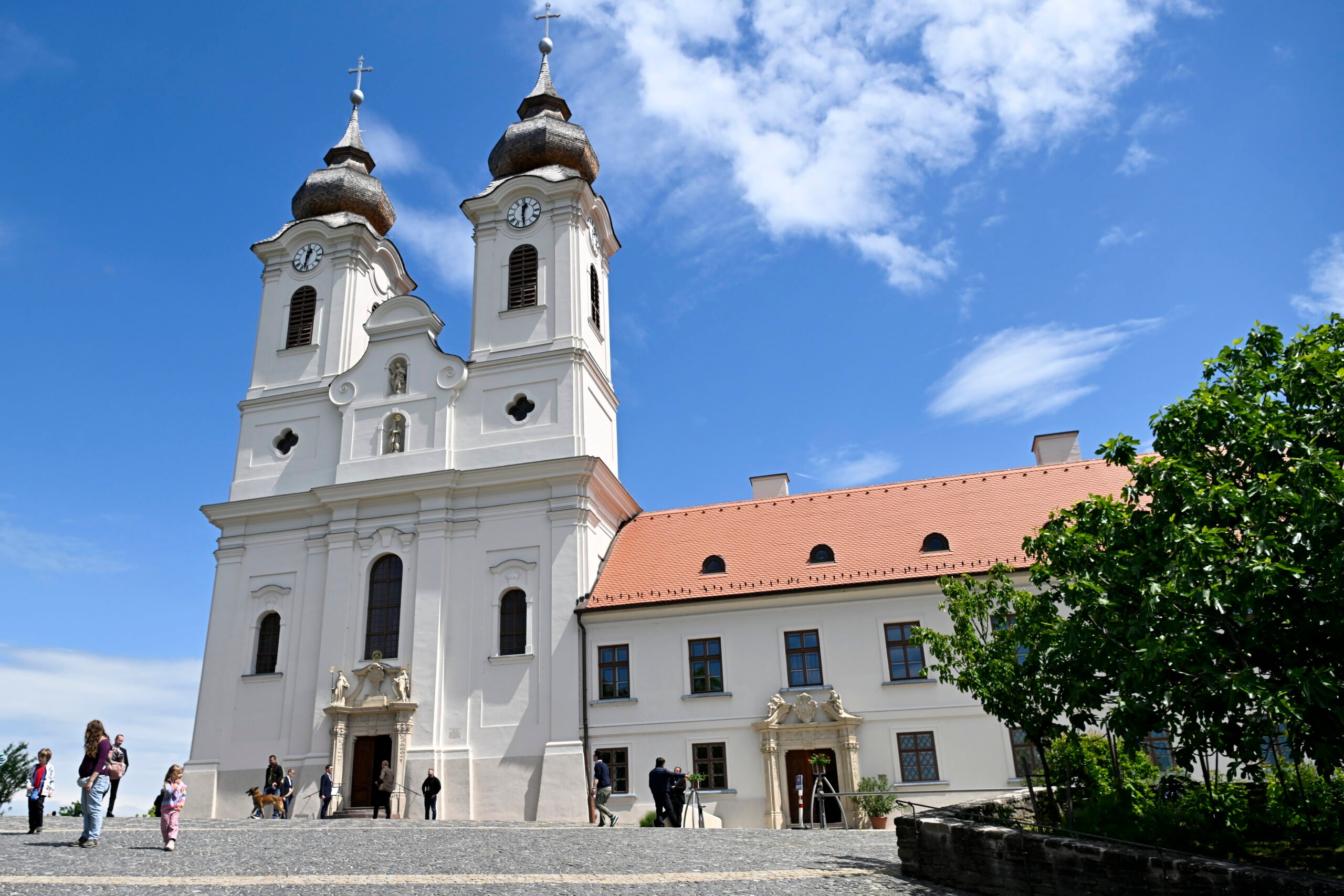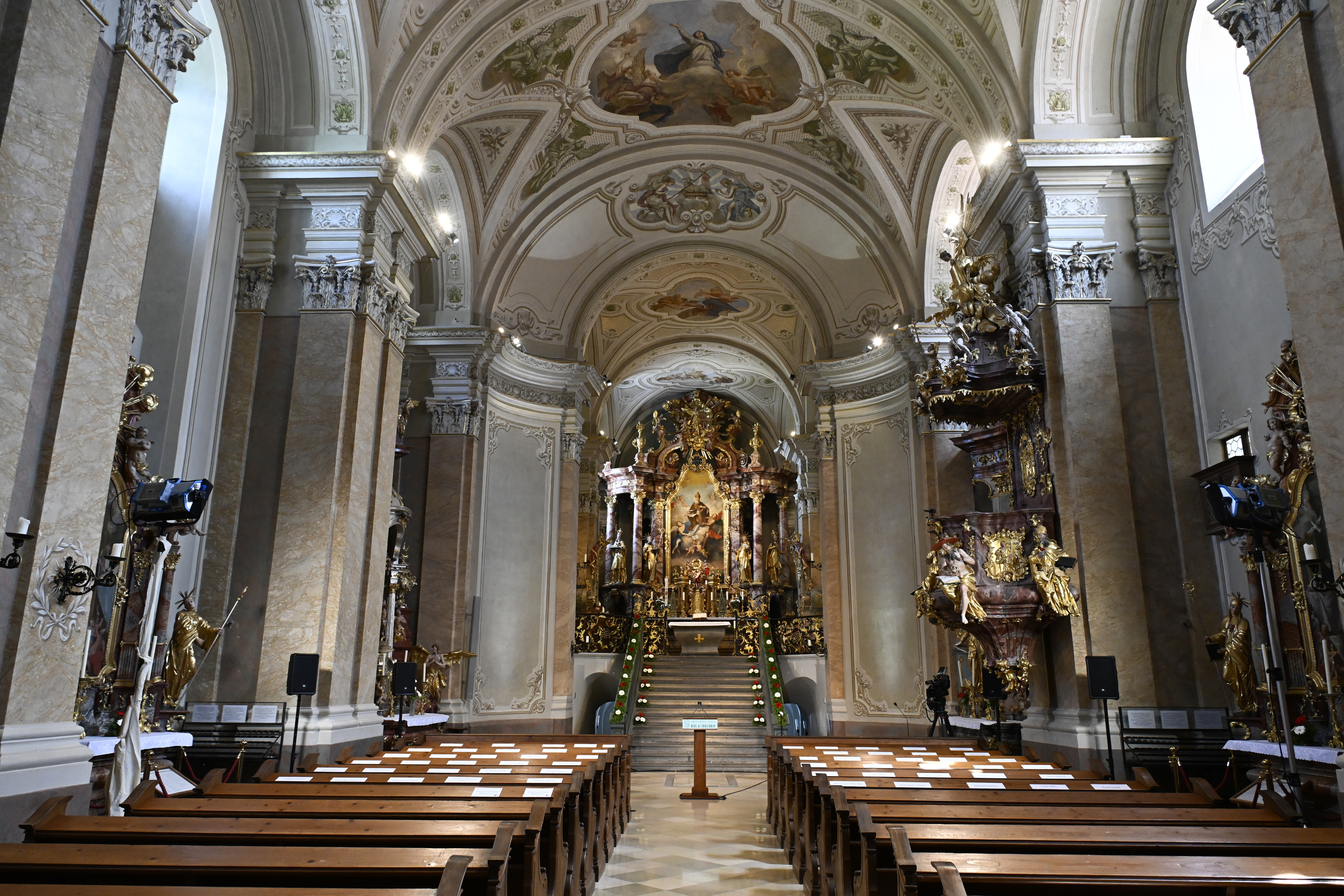
The survival of Hungarian villages depends not only on jobs and services, but also "on the spirituality of the people."Continue reading

“We want a Christian Europe because we believe that this is the only way forward,” said Prime Minister Viktor Orbán at the ceremony marking the handover of the renovated Benedictine Abbey and St. Christopher Pilgrims’ House in Tihany on Friday.
He drew attention to the fact that the wisdom and devotion of the Benedictine order took root in Tihany (northern shore of Lake Balaton) even before King Saint Stephen (975-1038), and pointed out that there is much to learn from the Benedictine monks of Tihany about survival and starting over.
He recalled that
the Benedictines of Tihany had been wiped off the face of the earth three times in the course of history, but each time they found each other again and rebuilt their spiritual home and stone walls.
Of the Turkish, Josephine, and then Communist closures and persecutions, it was the latter that was the most difficult for the Benedictine abbey to recover from. “It was not so long ago, let us keep that in mind,” he emphasized.
A thousand years ago, the Tihany peninsula became a peaceful and fruitful meeting place between East and West. Eastern priests arrived among the holy hills with King Andrew I, the founder of the church, and his wife Anastasia, where they lived, worked, prayed, and preached together with Western Benedictine monks, Mr. Orbán stated.
The Prime Minister added that Tihany is the holy mountain of the Hungarian people. The royal crypt here is the only burial place from the Árpád era that has been preserved in its original state, with the the tomb of King Andrew I. Moreover, at the end of October 1921, Charles IV, the last Hungarian king, spent his last days in Hungary in this building before being forced into exile.
Orbán underlined that in recent years, “we have renovated more than 3,000 churches and built 200 new ones in the Carpathian Basin.” This is a success, recognition, and support for the religious world, but all Hungarians can be proud that we value our past, he emphasized. He added that Christianity is also culture and civilization; we live in it, culture is the reality of everyday life.
Christian culture guides us through the contradictions of life: it determines our understanding of human relationships, including male-female relationships, family, success, work, and integrity.

The Benedictine Abbey of Tihany at Lake Balaton. Photo: MTI/Máthé Zoltán
The Prime Minister stressed that Hungarians are Europeans and Christians, and therefore cannot ignore the fact that the foundations of European life are under attack today. They want us to stop being who we are and become something we do not want to be. They want us to mix with people from other parts of the world, to confuse traditional gender roles, and on top of that, they would even involve us in a losing war, he explained. “Instead of the order of creation, we see confusion, turmoil, a new anarchy, signs of a new Babel everywhere,” stated Viktor Orbán.
He said that as people of good will, as peace-loving Christians, it pains them to see that a war psychosis has infected Europe. War instead of peace, killing instead of life, destruction instead of construction, EU membership for the sake of war, Viktor Orbán summed up. He emphasized that the founders of the EU were Christian people, and that this was not what the EU was created for. As a free, Christian European nation, we cannot allow decisions about the future of Europe to be made over our heads, he stressed.
In the shadow of empires, at the crossroads of civilizations, we have always won our battles for the survival of our homeland, the preservation of our nation, and Christian culture.
Without Christianity, as our constitution states, Hungary would not exist. We have triumphed in this and we will triumph again and again, he underlined.

The renovated inside of the Benedictine Abbey of Tihany. Photo: MTI/Máthé Zoltán
Orbán noted that during the debate between the Romanian presidential candidates, George Simion said that now is the time for a Europe of nations, a Christian Europe, in which we will fight for our right to be European citizens. “We completely agree,” said Mr. Orbán. He emphasized that we share a historical destiny with the Romanians. He added that Hungarians would like to send a message from here, from the heart of the Carpathian Basin, from this symbolic place, to the people of Romania and their future president: we stand on the ground of unity and cooperation, and therefore we will not support any isolation or political retaliation against Romania and its leaders.
The Prime Minister pointed out that Christianity is the best defense against the organization of Europe into an empire. He referred to the Christian teaching that the community closest to man has the opportunity and responsibility to manage its own affairs. If a family is able to take care of its members, the state should not interfere. A country should be able to decide for itself what path to take, and its future should not be determined by imperial centers, he said.
Hungary is a diverse country, richly colored and divided by centuries-old cultural and religious communities,
Orbán pointed out. He explained that we firmly believe that we are all connected by the idea of a Christian Hungary. Where there is a church, there is not only the past, but also the future. Where Christianity and patriotism reside, there is Hungary, he said. He emphasized that faith, history, statehood, and culture all come together in Hungary. The renovated Tihany Abbey is a shining example of this unity, a symbol that calls us to honor our past and build our future in the spirit of Christian freedom, he concluded.
Via MTI, Featured photo via MTI/Máthé Zoltán